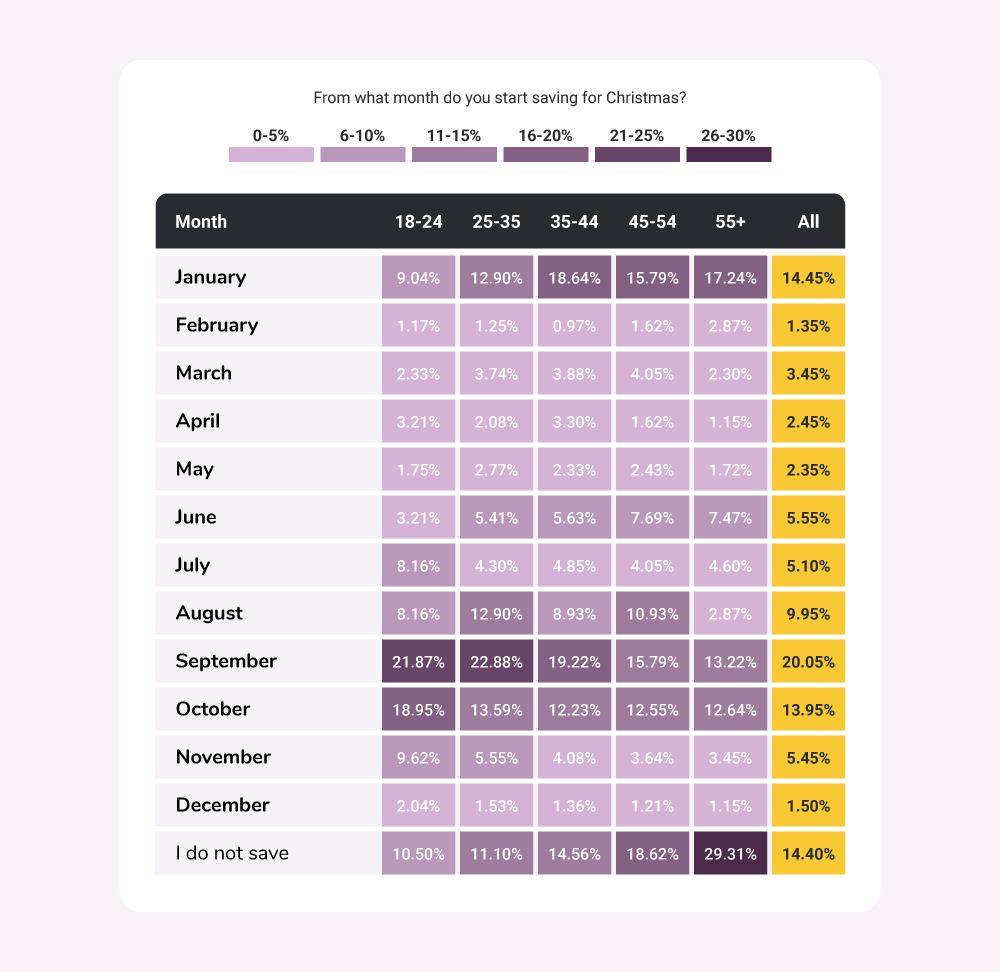With just over a month to go before the big day arrives, consumers are getting excited to exchange presents, attend parties and be merry this Christmas. However, it’s impossible to forget that this year’s celebrations will inevitably be tinged with financial difficulties.
The inescapable truth forms the basis of a new study published this week by the money comparison site money.co.uk.
Its findings delve into seasonal spending habits among UK consumers, analysing both savings, spending and how this year is set to be entirely different from the rest.
Here are a few of the main key points raised in its study:
Christmas budgets for 2022
One of the first areas addressed by the study was how much consumers are planning to spend this Christmas.
The majority of respondents, around 30 per cent, plan to spend between £301 and £500 this Christmas.
This is followed by the 6.9 per cent preparing to spend over £1,000 and the 6.5 per cent who plan to spend between £1 and £100.

In regard to Christmas last year, the figures suggest that consumers are preparing to spend less this time around. The company’s 2021 figures saw 28.7 per cent planning to spend between £301 and £500. However, this figure has increased by 1.6 per cent this year to 30.3 per cent.
Running in tandem with this, this year’s figures represent a 7.3 per cent increase in the number of consumers spending between £101 and £300.
Likewise, there was a 3.95 per cent decrease in the amount of spending between £501 and £800, indicating that people are certainly looking to reduce their spending this year.
Compared to last year’s budgets, 44.7 per cent were spending over £500 and 9.65 per cent were spending over £1,000, showing that the number of people spending in these brackets is falling.
When the saving starts
Having the funds to pay for Christmas is a worry that a lot of consumers will think about. For this reason, the study identifies when saving starts, and who does it best.
According to the data, 14.45 per cent of consumers begin saving for Christmas in January, followed by the 20.05 per cent of consumers whose saving starts in September.
However, 14.4 per take the risk of not saving for Christmas at all, a statistic that largely includes those over the age of 45.
On this note, 30 per cent of those aged over 54 follow suit in not saving, a stark difference from the 10.5 per cent of 18 to 24-year-olds that do not save.

In the convenient regional analysis provided by the study, Wales was found to be the only country in the UK whose majority (17.59 per cent) begin saving in January. Northern Ireland had the largest proportion of respondents who don’t save for Christmas at 17.31 per cent while England tumbles in last place with 14.04 per cent.
The data also suggests that households with three children will start saving in January, as reported by 21.13 per cent of the responses.
However, in an interesting turn, 23.19 per cent of households with four or more children are likely to begin saving in September.
Christmas consensus
The study’s data unveils a general consensus around Christmas spending this year. According to the figures, only 22.85 per cent will resume normal service for their celebrations this year.
The other 77.15 per cent of respondents are preparing to do things very differently. This includes the 18 per cent who are planning to spend less this time around, along with just under a third of responders wjp are worried about how the need for Christmas spending with effect their finances further down the line.
As previously outlined, 28.15 per cent admitted to saving spending money earlier than usual.

Twenty-seven per cent of men are planning for a regular Christmas, whereas women were found to be more likely to report that they were worried about how Christmas will affect their finances this year. In fact, one in three females responded that they were worried about their Christmas finances, compared to one in four men.
Households without children also reported they were less likely to be worried about how Christmas will affect their finances in 2022 at 26.34 per cent. Households with children consistently reported that they were worried about their finances this year, with two in five households with three children reporting being worried.



